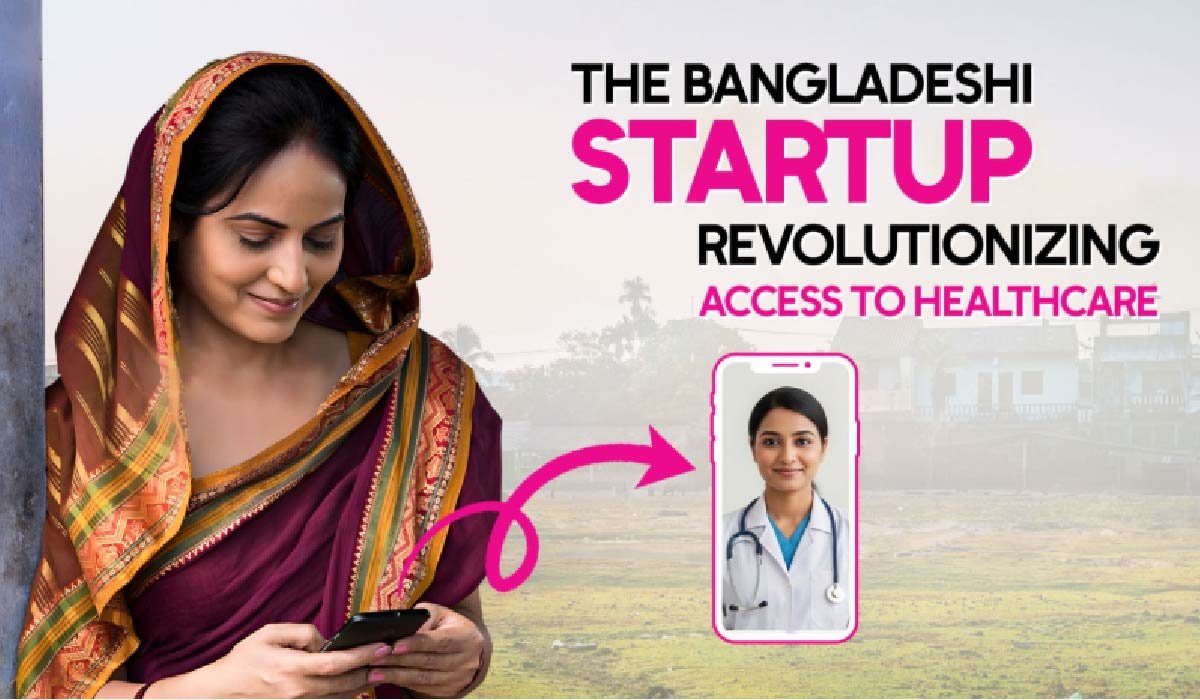Health
CliniCall: The Bangladeshi Startup Revolutionizing Access to Healthcare

In a small village near Rangpur, 45-year-old farmer Abdul Karim once had to travel over 30 kilometers and lose half a day’s wage just to see a doctor. When his daughter fell sick last winter, he tried something new. Within two minutes of opening an app on his phone, a licensed doctor appeared on a video call, prescribed medication, and guided him on care. The entire consultation cost him less than fifty cents.
Stories like Karim’s are no longer rare. They reflect a quiet revolution led by CliniCall, a Bangladeshi health-tech startup transforming how millions access medical care.
In a country with only six doctors for every 10,000 people, CliniCall is breaking barriers of distance, affordability, and time. The company has already completed over 30,000 consultations, including more than 7,000 video consultations, without any middlemen or agents—connecting patients directly with doctors through its secure mobile platform.
By leveraging AI-assisted triage, telemedicine technology, and a user-friendly app, CliniCall has brought down consultation costs from $5 to less than $0.50, while reducing average waiting time from 120 minutes to just two.
“Our vision is simple,” says a CliniCall spokesperson. “Healthcare should be accessible, affordable, and immediate for everyone—whether you live in Dhaka or a remote village in Kurigram.”
Beyond innovation, CliniCall’s mission aligns with the United Nations Sustainable Development Goal 3 (Good Health and Well-being) by promoting universal access to quality healthcare. Its impact-driven approach is already inspiring other developing nations to explore how digital technology can bridge critical gaps in medical access.
But CliniCall isn’t stopping there. It’s now venturing into another underserved frontier—health insurance. In Bangladesh, insurance penetration remains below 1%, one of the lowest in Asia, mainly due to high costs, lack of awareness, and outdated manual systems. Most families consider insurance a luxury, not a necessity.
CliniCall aims to change that narrative. Through its digital ecosystem, the company is partnering with insurers to introduce micro health insurance plans starting from under $25 per person annually—a groundbreaking move that makes coverage affordable for low- and middle-income families.
Take the story of Nasima Begum, a garments worker from Narayanganj. When her husband suffered a sudden stroke, the family struggled with hospital expenses. “If CliniCall’s insurance was there earlier, we could’ve saved a lot,” she says. Today, Nasima is among the first to sign up for CliniCall’s digital insurance plan—covering her entire family with just one mobile subscription.
By integrating telemedicine and digital insurance into one seamless app, CliniCall is redefining healthcare financing in Bangladesh. Users can consult doctors, access digital prescriptions, and manage insurance claims—all from one platform. This fusion of technology, trust, and affordability is what sets CliniCall apart.
From rural farmers to urban workers, CliniCall is proving that healthcare doesn’t have to be expensive or inaccessible. It’s not just an app—it’s a movement, a digital bridge connecting millions to better health and financial security.
As the world looks toward Bangladesh’s digital transformation, CliniCall stands as a model of how technology and empathy can come together to make healthcare truly universal.
-

 Celebrity1 year ago
Celebrity1 year agoWho Is Jennifer Rauchet?: All You Need To Know About Pete Hegseth’s Wife
-

 Celebrity1 year ago
Celebrity1 year agoWho Is Mindy Jennings?: All You Need To Know About Ken Jennings Wife
-

 Celebrity1 year ago
Celebrity1 year agoWho Is Enrica Cenzatti?: The Untold Story of Andrea Bocelli’s Ex-Wife
-

 Celebrity1 year ago
Celebrity1 year agoWho Is Klarissa Munz: The Untold Story of Freddie Highmore’s Wife
















